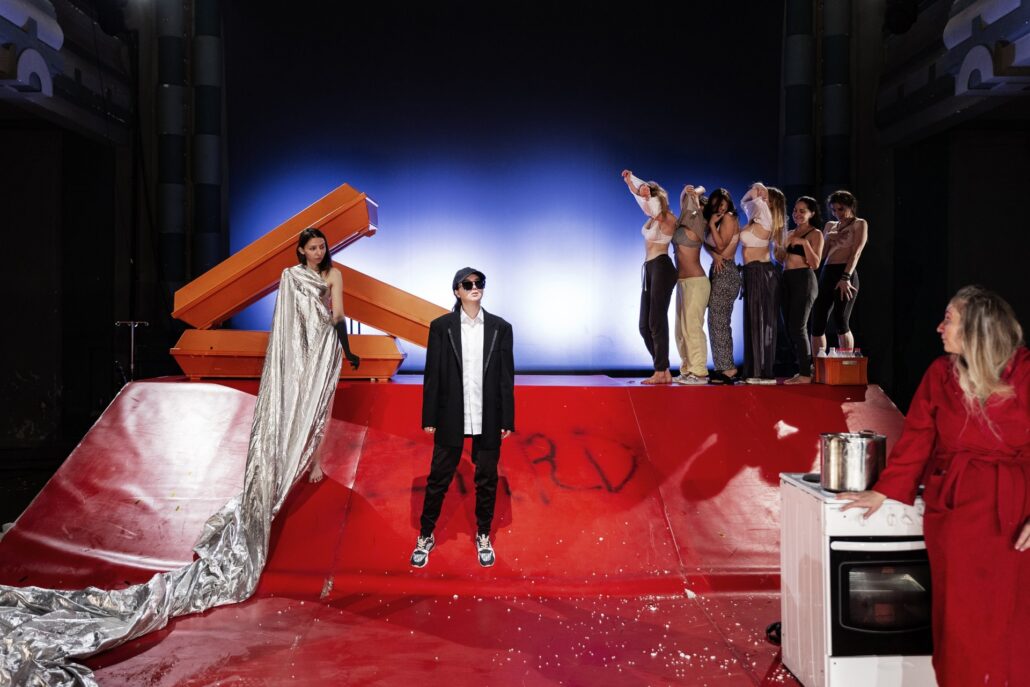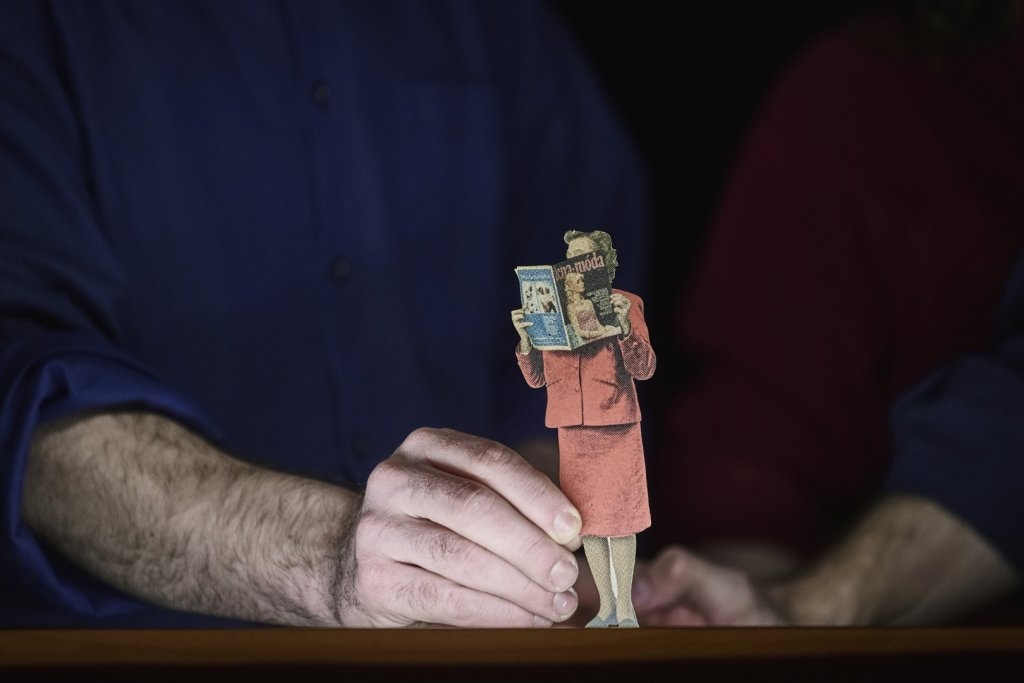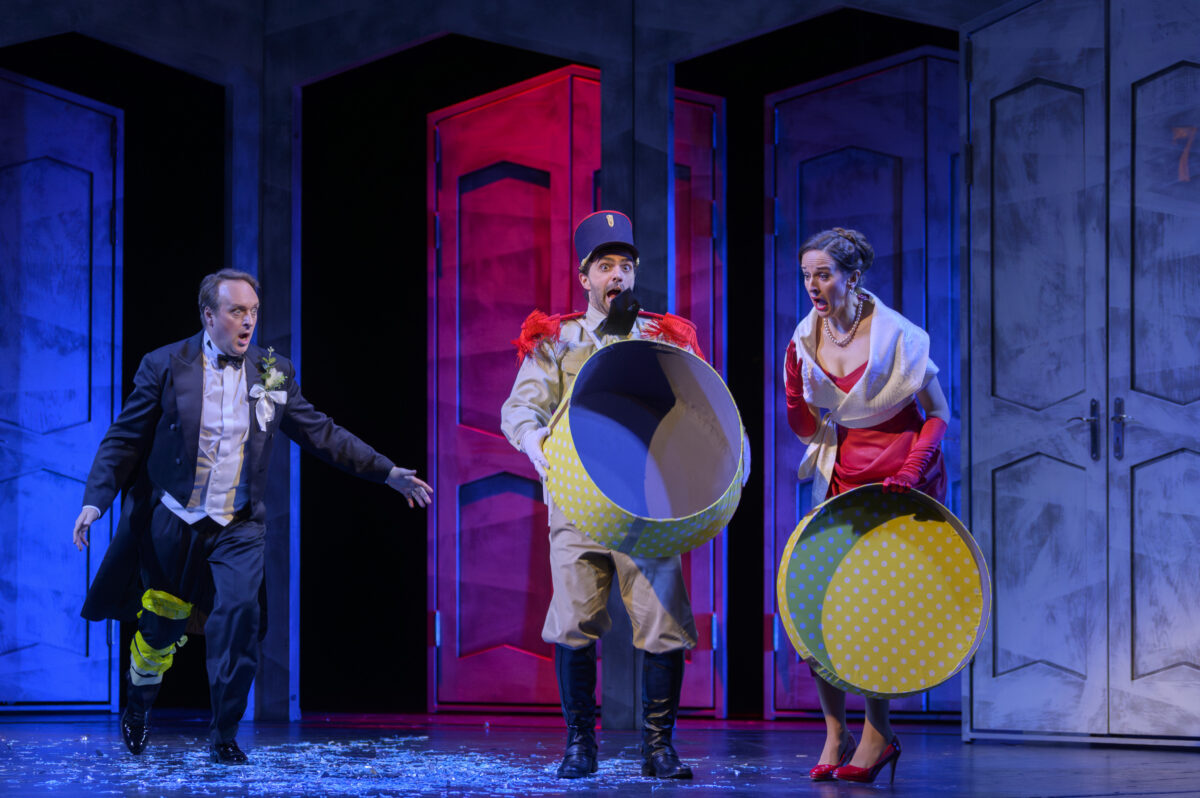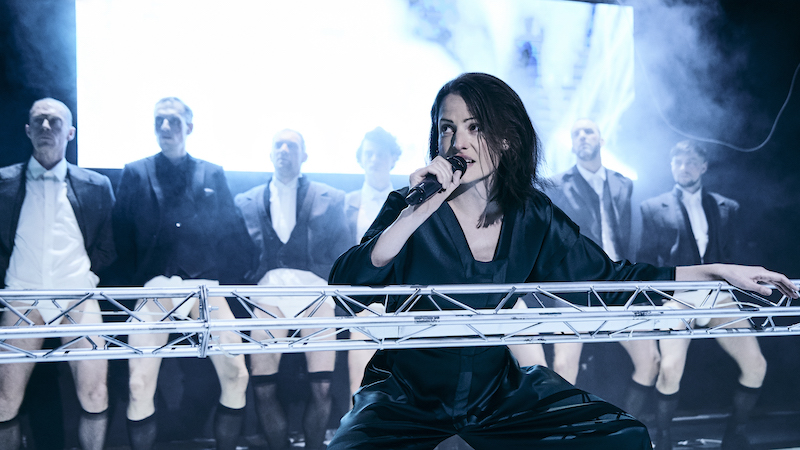Interview with JAKUB ČERMÁK
Theatre as a Space for Love
Jakub Čermák is a theatre and opera director, occasional actor and performer, playwright, frontman of the artistic gang Depresivní děti touží po penězích (Depressive Children Long for Money), and dramaturg at Prague’s cultural “cave”, Venuše ve Švehlovce. He has won several awards for his work, both in the Czech Republic and abroad. He works on contemporary adaptations of classical drama, as well as immersive theatre, and he has written several plays. He also works with performance, documentary theatre and queer theatre from a variety of viewpoints and collaborates with both independent and public theatres.
How does he compare audiences in Prague with regional audiences? What was the experience of working with Ukrainian actors in Euripides’ Trójanky (The Trojan Women) like and what is he looking for in collaboration with actors?
This year, you are preparing the third edition of the WILD! Festival of queer performance at Venuše ve Švehlovce. This type of theatre festival has no precedent in the Czech environment. The festival will feature new projects, foreign guests and blurred boundaries, including the line between performance and a pop-up photography exhibition.
Venuše ve Švehlovce is the goddess of love amongst Prague’s cultural establishments. It offers a unique atmosphere and a beautiful art deco main hall. It’s reminiscent of a bleak film location. But mostly, it has a very open dramaturgy that includes a variety of forms and genres. Initially, I was worried that having a permanent theatre space would limit us. After all, we began our existence as advocates of site-specific performance, which we continue with immersive theatre productions such as Bordel l’Amour (2018). The audience member is taken to a private room where they can choose from three different kinds of love and have a multisensory experience. There’s also Happy End in Hotel Chateau Switzerland (2020), which sits at the intersection of theatre and art installation and takes place at the former convent of St. Gabriel in Prague. But Venuše is so diverse and flexible that we are able to work with the space in all sorts of different ways.
I was really rather taken aback when I realised that there was no queer theatre festival in the Czech Republic. That we came up with the concept in Venuše was a logical choice and a great challenge. Lately, as well as programming existing productions from the Czech Republic and abroad, we are also trying to initiate the creation of new work. This year for instance, we have George by Eliška Říhová, inspired by the idiosyncratic personality of George Sand). My company Depressive Children Long for Money and I are also often programmed at this festival. This year, we’re preparing the premiere of Edward II by Christopher Marlowe, a play that has not been performed in the Czech Republic for 100 years.
Your work is known in Prague and other big Czech cities, but you also often direct in regional theatres. What is it like working with actors who may have spent years at the same regional theatre and audiences that might have experienced a different kind of theatre? Do you have to adapt your work in places where the cultural network is less dense?
I don’t feel that I have to work differently with actors in the regions, or use different methods. Of course I have experienced unpleasant moments and misunderstandings, but we have always managed to create a fair and friendly environment and, sometimes, even loving relationships. For me, it’s important to like my actors. But I feel that working with the audiences in the regions does require a different approach. I see theatre as communication and there is no point in creating a performance that would work in my eyes but be incomprehensible to the local audience. I try to shape the performance so that it is accessible. I don’t want to stretch the audience too much; instead, I try to prepare them gradually. The spectators can then often tolerate, or even enjoy and appreciate much more than they normally would. I don’t underestimate regional audiences. I don’t make it easy for them, but I try to achieve a performance that is both easily digestible and an extraordinary experience.

In September 2022, Depressive Children Long for Money had a premiere of Trójanky (The Trojan Women) that toured in the Czech Republic and Germany. Euripides’ classical drama created a direct parallel with the current conflict in Ukraine, amplified by the casting of 11 Ukrainian actors. How was it working on such resonant material with actors who were affected and often traumatised by this war?
It was one of the hardest things I have ever done. When I met with the people from the State Cultural Fund about the funding for this project (which was generously awarded and I am very grateful for this), I broke down in tears. I was deeply affected by this situation.
Of course, emotions had to be put aside in rehearsals, we focused on the common goal and worked together to achieve it. I’d thought I would be able to understand Ukrainian a bit better, but we would have been stuck without the actors who already spoke Czech. We also had a different understanding of the creative process. I think that the actors, apart from showing a great deal of talent, also demonstrated incredible flexibility. There were a few times in our discussions when I backed down on things that I would probably insist on with Czech actors, but in this instance I felt I had to consider all aspects of the collaboration, such as the experience of physicality in the space, for example.
I was very torn when we entered intensive discussions on how to deal with Euripides’ murder of infants in the text. The actors were worried that if they collectively tore their children apart and served them to the father (this was my vision), it would validate some of the lies and Russian propaganda about cannibalism in Ukraine. While this struck me as completely absurd in the Czech context – I thought only a total fool would believe this and there is no sense in discussing it – it was a huge taboo for the actors. But we discussed it openly and found a compromise that I hope was not experienced by the audience as such. For me, The Trojan Women is the essence of how art should respond to what is happening around us. I experience great catharsis with this performance, and judging by their reactions, so does the audience.
categories
Drama / Interdisciplinary / Interview

 Learn
Learn






